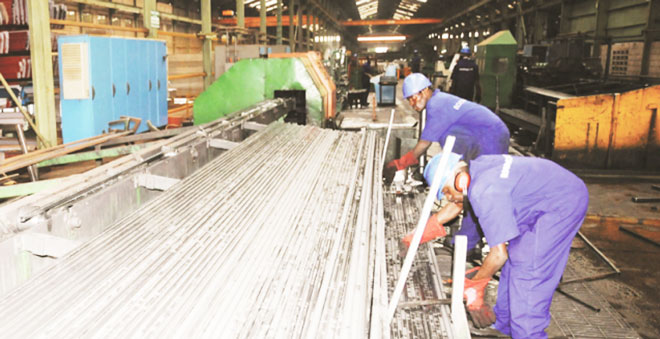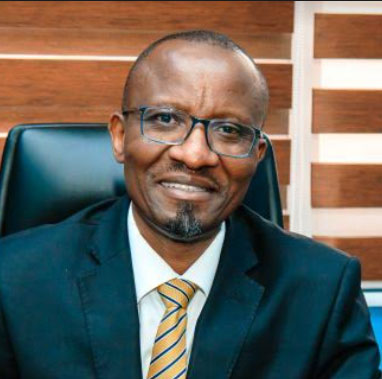
COMMENT | GEORGE ORODI | As a young graduate, when I was being introduced into the circles of trade and tax, my CEO then, Kaushik Shah made me attend some of the key meetings at the Kenya Association of Manufacturers and I would later grow to chair a sub-committee on regional trading bloc configuration and a member of the coveted Trade and Tax committee. This was at the peak of the negotiation of the Protocol establishing the East Africa Community Customs Union.
I spent quite some time in the corridors in Arusha, during these negotiations, as part of the delegation representing the interest of the private sector in Kenya. What a difficult negotiation it was especially on getting convergence amongst the 3 founding partner states on Common External Tariffs applicable to goods from outside the EAC.
During this early period, I became curious why some of these meetings, which I considered non-key then, were being attended by the key champions of the industry including the company owners and CEOs. The same trend of seeing high-level representation in trade meetings continued during my 5 and 7-year stints in Ethiopia and Uganda, respectively.
This was the time I realized that investors are keen on putting their weights to influence policies, even more than the markets. That explains why the champions of the industry coalesce around the meeting tables.
Beyond the formal meetings, they continue with self-centered, behind-the-scenes lobbying for policy considerations very specific to their companies. Companies with a strong lobbying arm and connections with policymakers would always find their demands considered, both at the national and regional levels, some to the detriment of the other players in the sector. Small players are disenfranchised and suffocated in the process.
No wonder many companies today have expanded their corporate affairs to include elements of trade and tax matters, away from the traditional responsibilities of the corporate affairs office.
I have seen great investments going down the drain due to policy changes that were not envisaged by the investor during the investment consideration. The politicians, who currently play a key role across the economic spectrum in policy formulation, make erratic pronouncements with less regard to their implications on current and future investments. On many occasions, such policy changes are pegged on one-sided representations by the company seeking favors with little mechanism for verification of data so presented.
In Kenya, one company, by the stroke of a pen of the political elite was given protection on Wire Rods without looking at its implication on the needs of other investors who depend on this product as raw material. This was done in such haste that the Government soon realized it was a mistake and started accommodating other manufacturers under the duty remission scheme for continued importation of the raw material when the protection had been forced through EAC processes in Arusha and protective duty imposed.
In Uganda, not in the long past, there was an issue of industrial sugar where one company made a presentation that they could supply the country’s demand for this raw material. Again, the policymakers engaged in overdrive gear, and a tax was slapped on imported sugar, which is a key raw material in the beverage industry amongst others. It did not take long for the Government to realize it was a big mistake.
The subsequent reversal after several months had left serious damage to various industries that had invested heavily in manufacturing but could not get an adequate supply of raw materials. A few months ago, I heard that Kenya is also falling into the same trap on industrial sugar with a bill in the offing to introduce some duty on the product to ‘protect’ a company that has not demonstrated any ability to meet the demand of the raw material in the country. For the Kenyan situation, it is even more laughable as the country cannot consistently meet its demand for table sugar.
Last year, Uganda introduced a 25% duty on Wire Rods without following any process on determining the supply side to verify adequacy in meeting the demand. Many companies that could not access the raw material required for making key construction materials including nails, BRC, barbed wire, and chain link ended up uprooting their machines. We uprooted ours too and, as a company, we have not been convinced of the need to go back to production.
Just like the case of white sugar, the Wire Rod issue turned out to be a premature decision and the policy was reversed through a duty remission scheme, which gave another window for the manufacturers to continue importing some quantity of Wire Rods. This was not before the economy had lost over 1 year on the issue, and with the 6-month lead-time in importation, the delay in rectifying the mistake will be even longer. Meanwhile, some of the manufacturers who had invested in Uganda have resorted to importing finished goods from other EAC member states at zero duty. A few manufacturers are relocating their manufacturing lines to Tanzania where they can produce and bring in the finished goods into the Ugandan market. Again, the Ugandan economy lost in this policy misjudgment.
Back to Kenya, while opening the clinker plant for the same company dominating the steel sector in Kenya a few weeks ago, the president gave a clear indication that it’s just a matter of time before protection is given to the company to manufacture and supply on clinker to the Kenyan market. There will be a monopoly for the supply of the key raw material for cement manufacturing putting paid to other investments including the multinational investors like Lafarge. Soon, the cement and steel (long products) sectors in Kenya will be dominated by one or two players.
These protectionist tendencies, especially for raw materials, betray the will of a free market and end up creating monopolies and oligopoly situations in sectors where the producer of raw material dominates the production and supply of finished goods at the same time, killing all other downstream competitors in the wake. As a result, the economy fails to take advantage of the multiplier effect in the value chain with a detrimental effect on job creation and revenue mobilization for the exchequer.
Simply giving short-term duty remission after failing to follow due process on changing policies cannot give comfort to investors who put in millions of dollars in key investment considerations. Duty remission only lasts 1 year without any assurance of future renewals. Can any investor derive comfort in such short-term provision?
What investors need are policies that are predictable and long-term with any concessions discussed within the industry, midwifed by the trade association, so that all the players are aware of the implications on their investment. This is the reason why during the negotiation of the EAC Protocol, member states seeking deviation from applying some provisions of the Protocol were subjected to EAC-sponsored verification based on three criteria– 1. Demand/supply, 2. Quality, and 3. Price competitiveness to ascertain the qualification criteria:
Demand/Supply criteria simply answer the key question if the country or the company had the adequate capacity to meet the demand of the players in the industry that require such material for their input and would not be jeopardized by the slapping of duties on imports of raw materials.
Price competitiveness addressed the issue of the price at which the domestic suppliers seeking protection would supply the final product. Production can meet the demand in a market but has the potential to come at a price that is so high that the players in the sector cannot compete effectively and provide value to the consumers (with an impact on inflationary pressures). The criteria call on companies to foster operation efficiencies in their processes for cost-effectiveness.
Quality criteria are simply to put the final product to the test against set quality standards without compromises. Put: if the market requires a drawing of a lion, do not substitute this demand with the drawing of a cat!
EAC should fully support the investment in backward integration in manufacturing to harness the available raw material in the EAC. However, the protection of companies undertaking such investments should be subjected to sober verification, based on these three criteria for the sake of protecting other investments in accessing raw materials. Just recently, the CEO of EAST Africa Business Council, John Bosco Kalisa raised an alarm over the ballooning stay of applications within EAC, at over 1,000. This growing number is a manifestation of a lack of discipline in applying rules on giving concessions.
One of the options to avoid shocks to the economy is to have a graduated level of protection by making the import duty rates reasonable to give other manufacturers a window to continue with the importation of some small quantity of raw material before the local manufacturers establish verifiable supply. What is this obsession with pegging protective duties at the level of the highest tariff band of CET at 25%? Why not 10%? Protection at high duties simply justifies that the manufacturer is not competitive on price. The other option is to apply a hybrid approach of giving protection to the manufacturer and at the same time giving reprieve to other manufacturers to bring in a small percentage of their raw material requirement under the duty remission scheme.
Let us make the policies predictable and follow the due process in offering protection through the verification mechanism and involvement of all sector players in any policy variation. Remember, however much leverage is given to a company to dominate a market for a product, the contribution of that one giant company cannot equate to the collective contribution of many manufacturers in job protection and revenue mobilization. The intention of such companies has never been to foster a working relationship with their competitors but to suffocate them by denying them raw materials and celebrating their slow demise.
*****
 The writer is the Business Head, of Uganda Baati Ltd & Vice Chair of – Uganda Iron and Steel Sector Association (within Uganda Manufacturers Association)
The writer is the Business Head, of Uganda Baati Ltd & Vice Chair of – Uganda Iron and Steel Sector Association (within Uganda Manufacturers Association)
 The Independent Uganda: You get the Truth we Pay the Price
The Independent Uganda: You get the Truth we Pay the Price



